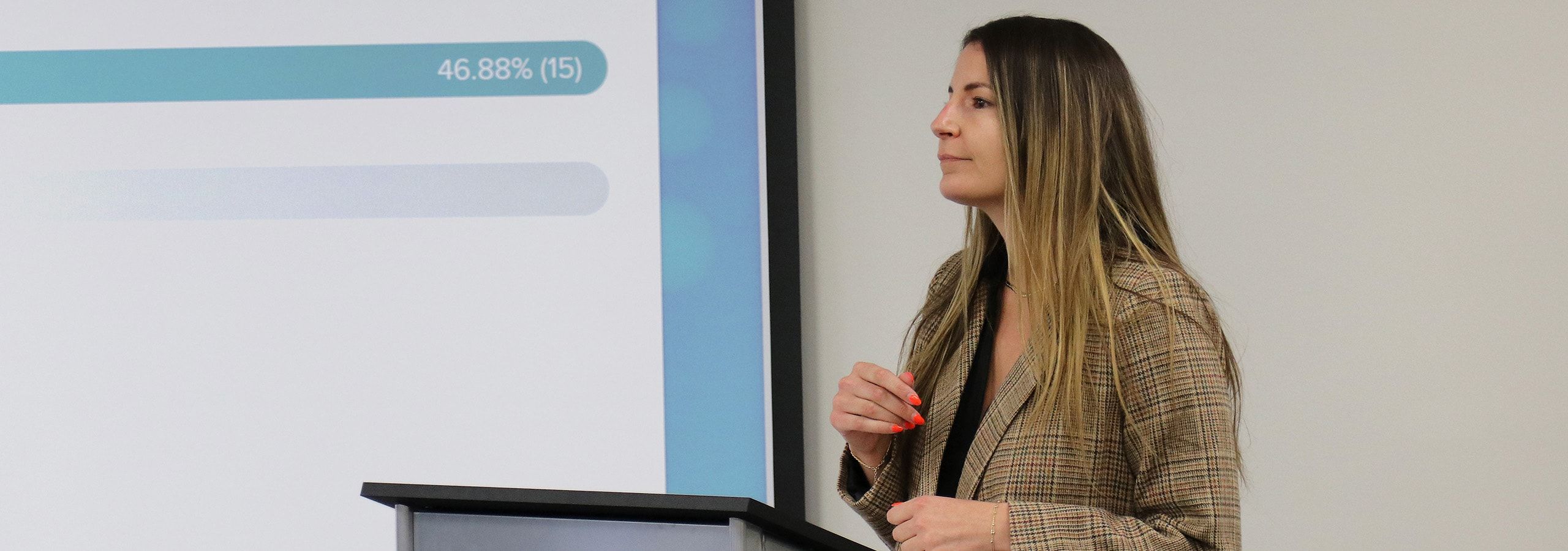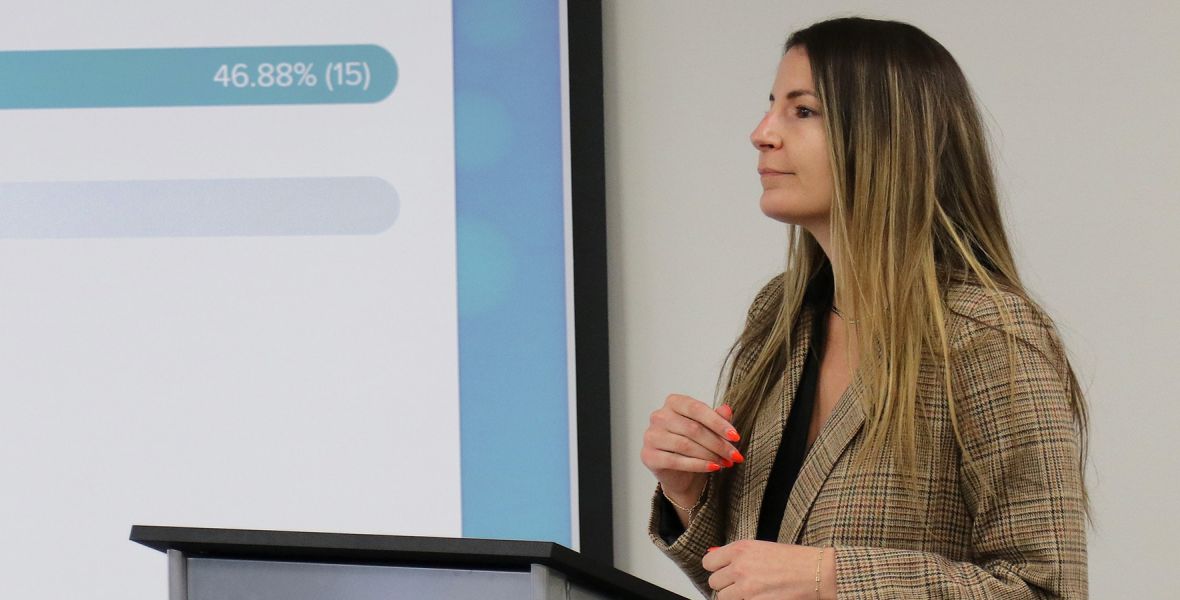

DOAR’s Natalie Gordon helps lawyers uncover juror attitudes on high-stakes matters
DOAR Consultant Natalie Gordon, Ph.D., is a well-regarded jury consultant with experience working on complex civil and white-collar criminal cases. She has contributed to many high-stakes matters, including U.S. v. Tom Barrack, Ambac v. Countrywide, US v. Jayson Penn, Monster Energy Co. v. Vital Pharmaceuticals, and SEC v. AT&T et. al., to name a few.
Dr. Gordon holds a Ph.D. in psychology and law with a dual specialization in basic and applied social psychology from John Jay College of Criminal Justice. Through her studies, she has examined the intersection of psychology and the legal system, giving her a solid foundation for applying psychological principles to conducting jury research. Among the many matters that Dr. Gordon works on, they primarily involve securities fraud, breach of contract, employment discrimination, antitrust, and white-collar criminal defense.
“It’s fascinating learning about the inner workings of such diverse industries,” said Dr. Gordon about working on so many litigation matters. “DOAR is selective about the cases it takes, but they are varied and complex. From matters involving professional sports to banking to financial markets to dating apps, our work affects companies across finance, technology, entertainment, and more.”
DOAR jury consultants have built a reputation for learning how prospective jurors respond to the big questions in a case and finding the themes that shape and advance the story. When asked about how jury research impacts a trial strategy, Dr. Gordon made the following three observations:
- Research events help attorneys set the direction of the case. At a high level, doing research can help counsel determine if the client should settle or proceed to trial. At a more granular level, research can answer strategic questions like: Should a particular witness testify? Should you bring in cross-defendants or blame the empty chair? How should you structure your verdict form? What themes resonate and how should you structure your opening? And, importantly, research can determine which characteristics might make someone less receptive to your case themes and how they can be identified through voir dire.
- Counsel can get real-time insight through shadow juries. Eliciting feedback from a shadow jury that observes the actual trial along with the empaneled jury can help inform counsel on the effectiveness of their presentations and witnesses, and allow them the opportunity to pivot and refine their strategy as needed.
- Conducting post-trial jury interviews can help inform future litigation strategies. Whether you win or lose a case, understanding what worked and didn’t work, or where things did not go as anticipated, can help counsel refine their trial strategy in future cases. Getting jurors to share what happened during deliberations at great length and with great detail is paramount to identifying trends and informing strategies for similar future matters.
While Dr. Gordon’s training and education have greatly influenced her ability to analyze juror behavior, her experience working collaboratively with seasoned DOAR colleagues and prominent trial attorneys on complex cases has given her an appreciation for what it takes to drive success.
“Each of us at DOAR has a unique background and set of skills from which we can provide diverse perspectives to educate each other,” Dr. Gordon said. “And with each new matter, we learn from our clients the history and nuances of the case and their approach to litigation.”
When asked to comment on a case she’s worked on that was most meaningful to her, she cited two cases that have stood out. The first was a criminal antitrust case in which the DOJ went after several senior-level executives in the broiler chicken industry for conspiring to fix the price of chickens. DOAR conducted several research exercises on behalf of two of the defendants, and in two separate trials, the jury was hung.
Dr. Gordon explained her involvement, “Unbelievably, after two mistrials, the DOJ decided to try the case a third time. I helped pick the jury for that trial and we received a jury verdict in our favor. I had gone into that jury selection feeling a tremendous injustice had been done by bringing this case for a third time against our client, and the acquittal was not only well-deserved but also incredibly emotional for all of us involved.”
Dr. Gordon also described the federal criminal case against Tom Barrack, who the government had alleged was unlawfully acting as an agent for the UAE. Dr. Gordon was a member of the research team for that case, which DOAR conducted on behalf of Mr. Barrack. Dr. Gordon described Mr. Barrack’s acquittal at trial as one that demonstrated the jury had likely seen this as a clear case of government overreach.
She stated, “There’s nothing more satisfying than seeing a jury make the decision not to allow someone to be sent to prison who hasn’t broken the law and doesn’t deserve it.”
Dr. Gordon believes that clients come back to work with DOAR time and time again because they value the expertise of the consultants and their dedication to refine and expand their skills while paying it forward. She has spearheaded some of DOAR’s pro bono efforts involving gun trafficking and is also a trained restorative justice facilitator and professor of psychology and law, social psychology, and research methods at her alma mater.
“My work as a restorative justice facilitator has informed my understanding of when it is appropriate to take accountability and what constitutes a sincere apology, how to compensate for critical voices missing from the narrative, and knowing when to highlight the fairness (or lack thereof) of a civil complaint or criminal indictment,” she says. “Also, teaching is another one of my passions and has the added bonus of making it easier to stay up to date on the current research in psychology, which I view as critical to my work as a jury consultant.”
That same dedication and passion among each employee makes DOAR the best in the business.
Subscribe to Receive
our Latest News
Recent Content
The trial consultants trusted by the nation’s leading trial lawyers.
Locations
New York
Los Angeles